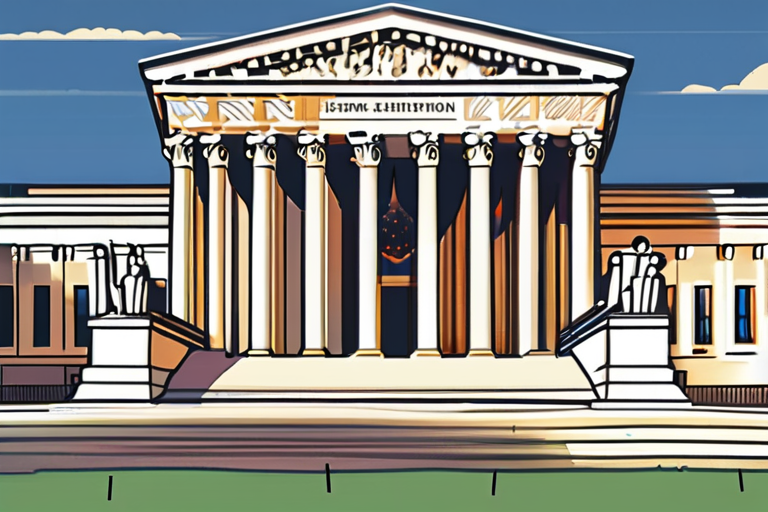Trump Seeks Supreme Court Ruling to Limit Birthright Citizenship After 125 Years of Interpretation


Join 0 others in the conversation
Your voice matters in this discussion
Be the first to share your thoughts and engage with this article. Your perspective matters!
Discover articles from our community

 Hoppi
Hoppi

 Hoppi
Hoppi

 Hoppi
Hoppi

 Hoppi
Hoppi

 Hoppi
Hoppi

 Hoppi
Hoppi

Billionaire Barry Silbert's $1 Billion Bet on AI-Crypto Convergence Billionaire entrepreneur Barry Silbert has invested heavily in a new project …

Hoppi

John Oliver Defends Jimmy Kimmel's Free Speech Rights Amid Suspension In a passionate defense of late-night host Jimmy Kimmel, HBO's …

Hoppi

Unused gas is burned off at an oil drill site in Catarina, Texas. Credit: Christopher Lee for ProPublica Environment Trump …

Hoppi

MarketsShareShare this articleCopy linkX iconX (Twitter)LinkedInFacebookEmailXLM Plunges 5 in Wild Trading Session Before Staging Sharp RecoveryNetwork upgrades trigger exchange halts …

Hoppi

Ukraine Emerges as Global Defence Tech Powerhouse Amid War KYIV, Ukraine - As the war with Russia enters its second …

Hoppi

Time Running Out to Save on Disrupt 2025 Tickets With only seven days left to secure Regular Bird pricing, attendees …

Hoppi